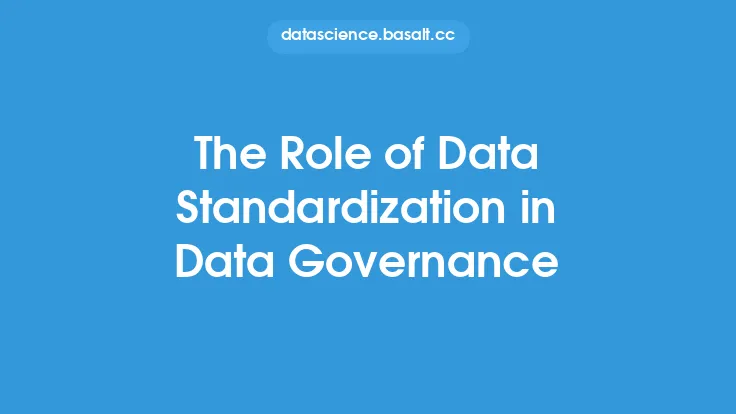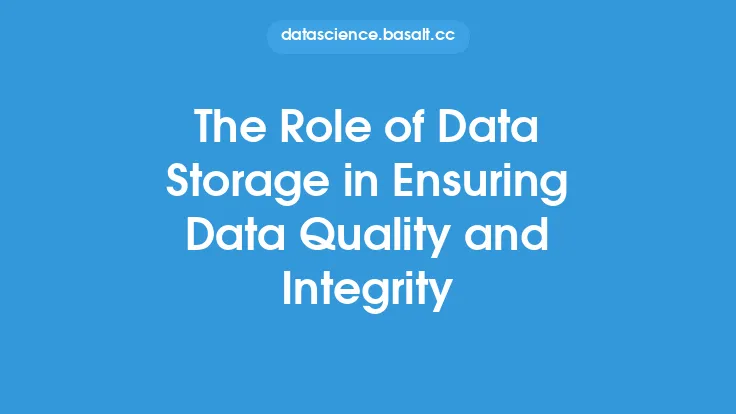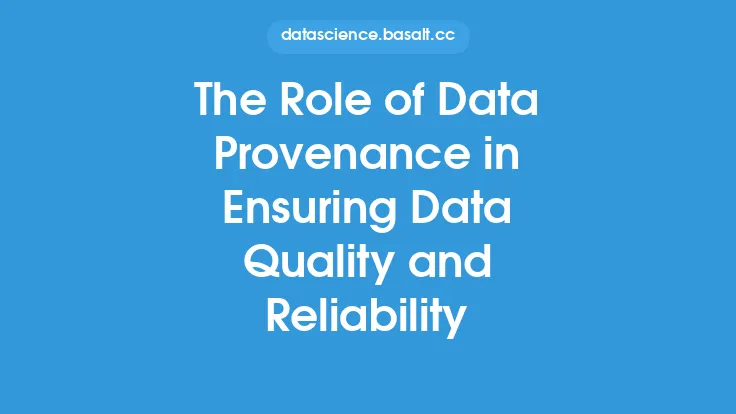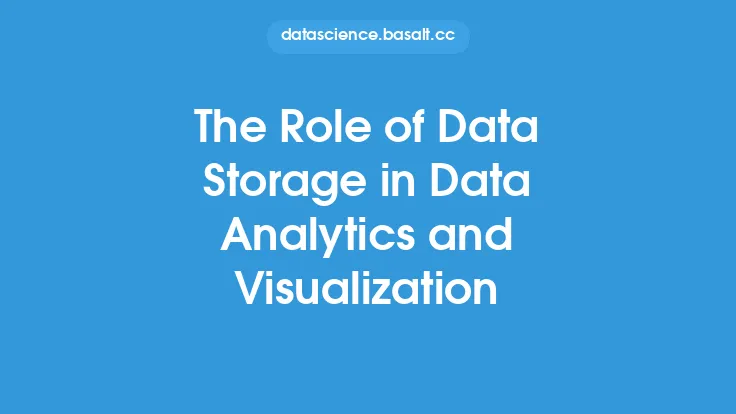Metadata plays a crucial role in data standards and governance, as it provides the context and meaning necessary to understand and manage data effectively. In essence, metadata is "data about data," describing the characteristics, structure, and relationships of data assets within an organization. This information is essential for ensuring data quality, integrity, and usability, and is a critical component of any data governance strategy.
Introduction to Metadata
Metadata can be thought of as a set of attributes or descriptors that provide additional information about a data asset, such as its name, description, format, size, and creation date. There are several types of metadata, including descriptive metadata, structural metadata, administrative metadata, and preservation metadata. Descriptive metadata provides information about the content and context of the data, such as author, title, and keywords. Structural metadata describes the organization and relationships between data elements, such as tables, fields, and records. Administrative metadata provides information about the management and maintenance of the data, such as access controls, backups, and storage locations. Preservation metadata ensures the long-term viability and accessibility of the data, including information about data formats, migration plans, and storage media.
The Role of Metadata in Data Standards
Metadata is essential for establishing and maintaining data standards within an organization. Data standards define the rules and guidelines for collecting, storing, and using data, and metadata provides the necessary context and meaning to ensure that these standards are applied consistently. By using metadata to describe data assets, organizations can ensure that data is accurate, complete, and consistent, and that it conforms to established standards and formats. This, in turn, enables organizations to integrate data from different sources, share data across departments and systems, and make informed decisions based on reliable and trustworthy data.
Metadata and Data Governance
Metadata is also a critical component of data governance, as it provides the necessary information to manage and oversee data assets effectively. Data governance refers to the set of policies, procedures, and standards that ensure the effective management and use of data within an organization. Metadata provides the necessary context and meaning to support data governance, including information about data ownership, access controls, and data quality. By using metadata to describe data assets, organizations can ensure that data is properly managed and governed, and that it is used in a way that is consistent with established policies and procedures.
Technical Aspects of Metadata
From a technical perspective, metadata can be implemented using a variety of tools and technologies, including metadata management systems, data catalogs, and data governance platforms. These tools provide a centralized repository for metadata, enabling organizations to manage and maintain metadata in a consistent and efficient manner. They also provide a range of features and functions, including data discovery, data lineage, and data quality monitoring, which enable organizations to understand and manage their data assets more effectively. In addition, metadata can be implemented using standardized metadata models and frameworks, such as the Dublin Core Metadata Initiative (DCMI) and the Data Catalog Vocabulary (DCV), which provide a common set of metadata elements and attributes that can be used to describe data assets.
Best Practices for Metadata Management
To get the most out of metadata, organizations should follow best practices for metadata management, including establishing a clear metadata strategy, defining metadata standards and policies, and implementing a metadata management system. They should also ensure that metadata is accurate, complete, and up-to-date, and that it is properly maintained and updated over time. Additionally, organizations should provide training and support to users, to ensure that they understand the importance and value of metadata, and how to use it effectively. By following these best practices, organizations can ensure that metadata is used effectively to support data standards and governance, and that it provides the necessary context and meaning to manage and oversee data assets.
Challenges and Opportunities
Despite the importance of metadata, there are several challenges and opportunities that organizations should be aware of. One of the main challenges is ensuring that metadata is accurate, complete, and up-to-date, as this requires significant resources and effort. Another challenge is integrating metadata from different sources and systems, as this can be complex and time-consuming. However, there are also opportunities for organizations to leverage metadata to improve data standards and governance, such as using metadata to automate data quality monitoring and data lineage tracking. Additionally, organizations can use metadata to provide insights and analytics, such as data usage patterns and data quality metrics, which can help to inform decision-making and drive business value.
Conclusion
In conclusion, metadata plays a critical role in data standards and governance, providing the necessary context and meaning to understand and manage data effectively. By using metadata to describe data assets, organizations can ensure that data is accurate, complete, and consistent, and that it conforms to established standards and formats. Metadata is also essential for data governance, providing the necessary information to manage and oversee data assets effectively. While there are challenges and opportunities associated with metadata, organizations can leverage metadata to improve data standards and governance, and to drive business value. By following best practices for metadata management, and using metadata to support data standards and governance, organizations can ensure that their data assets are properly managed and governed, and that they provide the necessary insights and analytics to inform decision-making.





